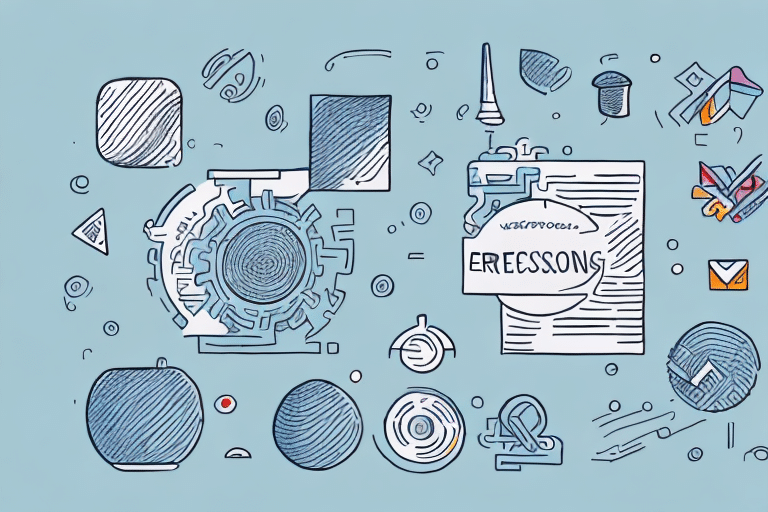Discovering Your Three Strengths to Bring to Your Job
Achieving success in your career hinges significantly on understanding and leveraging your personal strengths. These are the unique talents, abilities, and skills that come naturally to you and are highly valued by employers. Recognizing and applying your strengths not only sets you apart from others but also makes you a vital asset to any team. This article delves into the importance of identifying your strengths and provides actionable strategies to harness them for career advancement.
Importance of Identifying Your Strengths for Career Success
Benefits in the Workplace
Understanding your strengths is essential for maximizing your potential in the workplace. When you focus on what you excel at, you can:
- Enhance Performance: Leveraging your strengths leads to higher productivity and better quality work.
- Increase Job Satisfaction: Engaging in tasks that align with your strengths fosters greater job satisfaction and fulfillment.
- Improve Career Prospects: Clearly defined strengths can open doors to new opportunities and promotions.
According to a Gallup study, employees who utilize their strengths daily are six times more likely to be engaged on the job.
Connection Between Strengths and Job Performance
Research indicates that individuals who apply their strengths at work exhibit higher levels of engagement, happiness, and productivity. A study published in the Journal of Applied Psychology found that employees who use their strengths regularly report greater job satisfaction and are less likely to experience burnout.
Moreover, a strengths-based approach can lead to enhanced job loyalty. Employees who feel their strengths are recognized and utilized are more inclined to stay with their employers, reducing turnover rates and fostering a committed workforce.
Conducting a Personal Strength Assessment
Techniques and Tools
Identifying your strengths begins with a comprehensive self-assessment. Here are some effective methods:
- Personality Tests: Tools like the 16 Personalities test or the CliftonStrengths assessment can provide valuable insights into your innate talents.
- Feedback from Others: Soliciting input from colleagues, mentors, and supervisors can highlight strengths you may not recognize in yourself.
- Reflective Journaling: Keeping a journal of your accomplishments and the skills you utilized can help identify recurring strengths.
Engaging with a career counselor or coach can also offer personalized guidance in uncovering and understanding your strengths.
Regular Reassessment and Development
Strengths are not static; they can evolve with new experiences and skills. Regularly reassessing your strengths ensures that you stay aligned with your career goals and can adapt to changing job markets. Consider scheduling periodic reviews of your strengths, seeking new learning opportunities, and staying open to feedback to continuously develop your abilities.
Identifying Your Top Three Strengths
Tips and Strategies
Focusing on your top three strengths can provide clarity and direction in your career. Here are some strategies to identify them:
- Reflect on Past Successes: Analyze moments when you excelled and identify the skills you employed.
- Seek Constructive Feedback: Ask peers and supervisors to highlight your key strengths.
- Assess Enjoyment and Passion: Consider which activities you find most engaging and rewarding.
Considering Skills and Experiences
Your top strengths often emerge from the skills and experiences you've developed over time. Think about the challenges you've overcome and the achievements you've attained. These instances can reveal strengths honed through perseverance and practical application.
The Role of Personality Traits in Strength Identification
Personality traits significantly influence your strengths. For instance, an extroverted individual may excel in roles that require networking and public speaking, while a detail-oriented person might thrive in data analysis or project management.
Understanding how your personality aligns with your strengths provides deeper insights into your ideal career paths and how you can effectively collaborate with diverse teams. The Big Five personality traits framework is a useful tool for exploring this alignment.
Exploring Different Types of Strengths: Soft Skills vs Hard Skills
Strengths can be categorized into two main types:
- Soft Skills: These include communication, leadership, teamwork, and problem-solving. Soft skills are essential for building strong professional relationships and fostering a collaborative work environment.
- Hard Skills: These are technical abilities and specialized knowledge, such as programming, data analysis, or medical expertise. Hard skills are often specific to particular industries and roles.
Both soft and hard skills are valuable, but the emphasis may vary depending on the job. For example, a software developer requires robust technical skills, while a project manager benefits significantly from strong leadership and communication abilities.
Balancing and continually developing both types of skills can enhance your overall employability and career progression.
Leveraging Your Strengths for Job Satisfaction and Career Advancement
Enhancing Job Satisfaction
Aligning your work with your strengths leads to a higher sense of purpose and engagement. When you perform tasks that resonate with your abilities, you're more likely to experience fulfillment and maintain motivation.
Communicating Your Strengths to Team and Manager
Effectively communicating your strengths ensures that you are assigned tasks that best suit your abilities. Here’s how:
- Be Specific: Clearly articulate what your strengths are.
- Provide Examples: Share instances where you've successfully used your strengths.
- Align with Goals: Demonstrate how your strengths can contribute to team and organizational objectives.
Overcoming Weaknesses by Focusing on Strengths
Focusing on your strengths can help mitigate weaknesses. For example, if public speaking is a weakness but writing is a strength, you can contribute by handling written communications effectively.
Using Strengths to Advance in Career
By consistently applying your strengths, you position yourself as a valuable contributor, increasing your chances for promotions and leadership roles. Employers recognize and reward employees who excel in their areas of strength.
Incorporating Strengths into Career Development Plan
Integrate your strengths into your career development by setting goals that align with them. Seek training opportunities, mentorship, and projects that allow you to utilize and further develop your strengths.
Incorporating Your Strengths into Your Career Development Plan
Creating a career development plan that leverages your strengths ensures long-term success and satisfaction. Steps include:
- Set Goal-Oriented Objectives: Establish career goals that align with your strengths.
- Seek Relevant Training: Pursue education and training that enhance your core strengths.
- Network Strategically: Connect with professionals and organizations that value your strengths.
- Explore New Opportunities: Look for roles and projects that allow you to apply your strengths effectively.
The Importance of Regularly Re-assessing and Developing Your Strengths
Your strengths can evolve over time, making regular reassessment crucial. Continuously developing your strengths ensures you remain competitive and adaptable in a dynamic job market. Strategies for ongoing development include:
- Seek Feedback: Regularly obtain feedback to identify areas for improvement and further strength development.
- Embrace Lifelong Learning: Engage in continuous education and training to refine and expand your strengths.
- Set Periodic Reviews: Schedule regular intervals to review and update your strengths and career goals.
By maintaining a proactive approach to strength development, you can sustain motivation, achieve career growth, and remain aligned with your professional aspirations.
In conclusion, identifying and leveraging your strengths is fundamental to achieving career success and personal fulfillment. Through comprehensive assessments, strategic communication, and continuous development, you can harness your unique abilities to excel in your job and advance your career. Take the initiative to discover your strengths today and unlock your full potential in the workplace.




















